
Research Center
Research Center
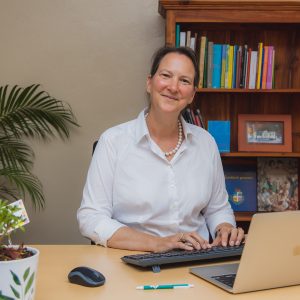
Viola Heutger
Publications for the year 2021:
Mincke/Heutger, Einführung in das niederländische Recht, 2. Auflage, JUS-Schriftenreihe, Beck, München, 2021 (an introduction to Dutch law and legal language in German)
‘Wet Consumentenkrediet’, Tekst en Commentaar, Vermogensrecht, Kluwer, 11th edition, 2021, 1563-1601, 2533-2541.
‘Consumentenkredietovereenkomsten’, Tekst en Commentaar, Burgerlijk Wetboek, Kluwer, 14 th edition, 2021, 4113-4151.
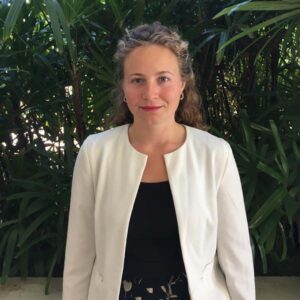
Amber S. van Veghel
Abstract: Amber van Veghel is a professional in the field of food and sustainability, with a holistic view on sustainable food systems. She has a BSc and MSc degree in Food Technology from Wageningen University, where she specialized in sustainable food process engineering. Her work is based on a curiosity of how (Which food? Why? When? How?) food reaches our plates, and the interactions with nature, social structures, and our economy.
In her PhD research Amber focuses on quantifying the environmental impact of small island’s food chains, using life cycle analysis (LCA) as a method to calculate for example carbon footprint, water footprint or land use of food products. Amber also enjoys supervising and teaching students on any food and sustainability related topics, as well as giving lectures on this topic.
My LinkedIn Profile
My Portfolio can be found on KU Leuven.
Article: November 22, 2021 (Jaargang 132 nr 278). Article Amigoe Aruba “Promovenda Amber van Veghel onderzoekt CO2-uitstoot Arubaanse voedselconsumptie”
Presentation: June 4 2020, Presentation on “Are we programmed to make unsustainable food choices?” for a conference on ‘Social impact by Sustainable Programming’ hosted by Innovation Ç (Curaçao).
Starts at 54:00.
Keynote: January 11 2022, Keynote on “The science behind sustainable food systems” for a session on Food systems and nutrition patterns, as part of the Voluntary National Review 2022, hosted by SDG Curaçao 2030 (Government of Curaçao).
Starts at 15:45.
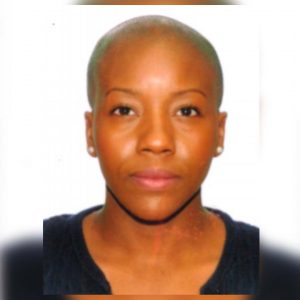
Colleen Weekes
Conference: 18th International Symposium on Waste Management and Landfilling
Conference Presentation: Sustainable strategies for materials and energy recovery from municipal solid waste in small island states; a case study of Aruba
Abstract: The management of municipal solid waste (MSW) presents a perennial problem for small island states (SIS). Geographic isolation from key markets, narrow economic bases, as well as institutional shortcomings are key factors which stymie the development of critical waste management infrastructure. This necessitates interventions which are sustainable and appropriate for the SIS in which they will be implemented. With a steadily growing population and a resource-intensive tourism sector, the island of Aruba exhibits many of these characteristics. While some materials are recovered from MSW for processing abroad, recycling is in an incipient phase and there are significant opportunities for maximizing the intrinsic value of the island’s waste.
A baseline is first formulated to examine the operation and efficiency of Aruba’s current MSW management system with focus placed on waste composition, volumes, mass flows and existing processing technologies. Several strategies for improved MSW management are then analyzed and compared using material flow analysis. Given the sizeable share of organic waste present in Aruba’s MSW, composting figured prominently in scenario development. Incineration with energy recovery, export for co-processing in neighbouring countries and sustainable landfilling are also considered as potential alternatives for MSW management. When these technologies were compared on the basis of mass balance, a combination of recycling, composting and incineration with energy recovery was shown to be the most compelling strategy for long term MSW management in Aruba.
My LinkedIn Profile
– Conference link
– Collaboration Professors / Universities
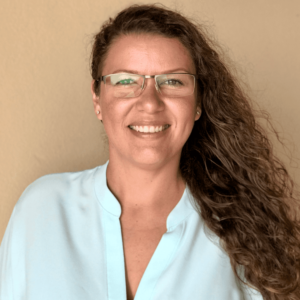
Saskia C. M. Franken
Research Project: Promoting Healthy Drinking Behaviors Among Aruban Children Through Social Network Interventions
Abstract: Unhealthy drinking behaviors, such as sugar sweetened beverages, has been observed to be one of the major causes of childhood obesity in a Caribbean island—Aruba. A healthier lifestyle and behaviors thus need to be encouraged and promoted, therefore, the main objective of this research project is to execute a randomized controlled intervention program to encourage healthy drinking behaviors among Aruban children while particularly including social network influences. However, essential information must be generated first to create scientifically validated Aruban findings so that these can be examined and used as a foundation in the design and implementation of the main study. Therefore, this project is structured around three studies—two sub studies contributing to the third, main, study. The first study’s purpose is to implement a successful Dutch randomized controlled trial intervention that targets children’s drinking behaviors and to determine the feasibility, create a framework, and anticipate the effectiveness of the main study. The purpose of the second study is to conduct a theoretical based designed survey to measure and discover the relative important determinants of children’s (un)healthy drinking behaviors to be able to target these effectively in the main study. The goal of the third study is to accomplish this project’s main objective, that is, to build forth on the groundwork’s aggregated insights and findings, in order to specifically design, implement and test—for the children in the Aruban context—an effective social network intervention program to promote healthy drinking behaviors.
Collaborators:
– Promoter; Moniek Buijzen
– Copromoter; Crystal Smit
– Copromoter; R. de Leeuw
– My Personal PhD Candidate
Publication: https://www.mdpi.com/1660-4601/15/4/713
Publication PDF: Link here
– Presentation Abstract
– Radio Interview
– Symposium Article
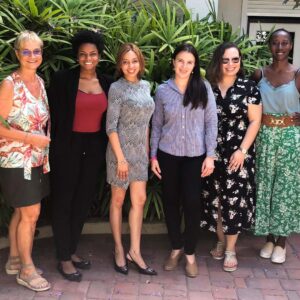
COVIDCAS
Research: COVIDCAS Research into the social impact of COVID-19 in Dutch Caribbean societies
Abstract: In March 2021, the university of Aruba in partnership with the Curacao Biomedical Health and Research Institute and universities of, Curacao, Sint Maarten and Utrecht started a research project to study the impact the COVID-19 pandemic has had on the quality of life and human rights of vulnerable families in Aruba, Curaçao and Sint Maarten.
Background: More than two years after the first worldwide lockdowns were introduced, the COVID-19 virus continues to be an ongoing health crisis. The COVID-19 pandemic has and continues to disrupt the global economies, health care systems and social structures. The Dutch Caribbean islands have not been spared. The consequences have amounted to economic crises on all islands along with strained health-care systems, social structures, and living standards.
The purpose of this multi-disciplinary is therefore to study the social impact the COVID-19 pandemic has had on vulnerable low-income families in Aruba, Curaçao and Sint Maarten (CAS islands) and the State responses toward vulnerable groups.
Read more…
Research Consortium Members:
CBHRI
– Prof. Ashley Duits, PhD
– Jantina (Tieneke) Alberts, PhD
– Izzy Gerstenbluth, MD
– Merel F.H. Griffith-Lendering, PhD
– Elly Hellings, MSc
– Eurydice Martina, MSc

University of Aruba
– Benedicta Deogratias, LL.M , PhD
– Mieke de Droog, PhD
University of St. Martin
– Prof. Antonio Carmona Báez PhD, USM
– Raymond Jessurun, PhD 
University of Curaçao
– Lisbethe Echteld, PhD
University of Utrecht
– Prof. Ajay Bailey PhD
– Jelte Elsinga, MD, PhD,
– Ilse van Liempt, PhD
Research Team Aruba
– Mr. dr. Benedicta Deogratias, Project coordinator
– Dr. Mieke de Droog, Project coördinator
– Dr. Luc Alofs, Project advisor
– Nurianne Arias- Helder, Interviewer
– Thais Franken, Interviewer
– Yanelis Botm, Interviewer

Academic Foundation Year
Research: Pre-University engagement and education for sustainable
development in Aruba: The Academic Foundation Year
Research Team:
– Mollie Chapman
– Maarten B. Eppinga
– Tobia de Scisciolo
– Eric N. Mijts
Abstract
Purpose: Universities of Small Island States (SIS) have the potential to fulfill a crucial role in implementing the Sustainable Development Goals (SDGs) but also face barriers to local capacity building. The University of Aruba partly addresses these challenges through the development of The Academic Foundation Year (AFY), a one-year pre-university program aiming to optimally equip students for higher education. This study aims to assess to what extent the program can foster the local embeddedness of the students in ecology, culture and history and an understanding of opportunities and challenges for sustainable development in SIS.
Read more… (Online Link)
Download Paper (PDF)

